7 Ps of cold weather safety
If it’s cold enough to grab a coat, it’s probably time to refresh your knowledge on the precautions that need to be done before Old Man Winter comes knocking at the door.
Here are seven things to know about cold weather safety.
1) People
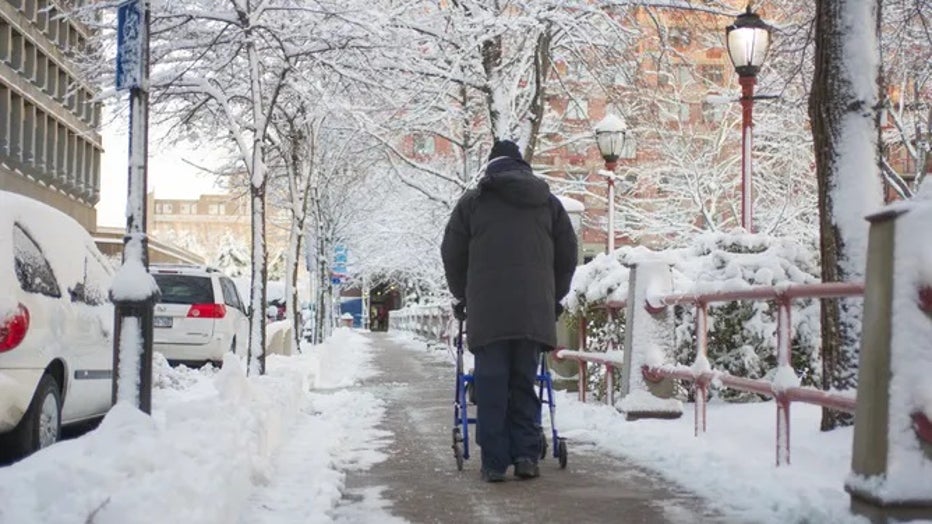
An older man walks along a snowy sidewalk. (Education Images / Universal Images Group / Getty Images)
Check on the elderly and less fortunate to make sure everyone has a warm place to stay. The American Red Cross suggests wearing loose-fitting layers instead of a bulky sweater to keep warm.
2) Pets

A dog frolics in the snow. (Photo by Charles McQuillan/Getty Images / FOX Weather)
The American Veterinary Medical Foundation says that if it is too cold for humans, it’s too cold for many animals, including cats and dogs. Animals’ fur does not act as an extra blanket during cold weather.
Experts say it is also essential to wipe down your pet’s legs after going outdoors to reduce the poison risk from deicing agents that maybe on sidewalks and roadways.
3) Plants
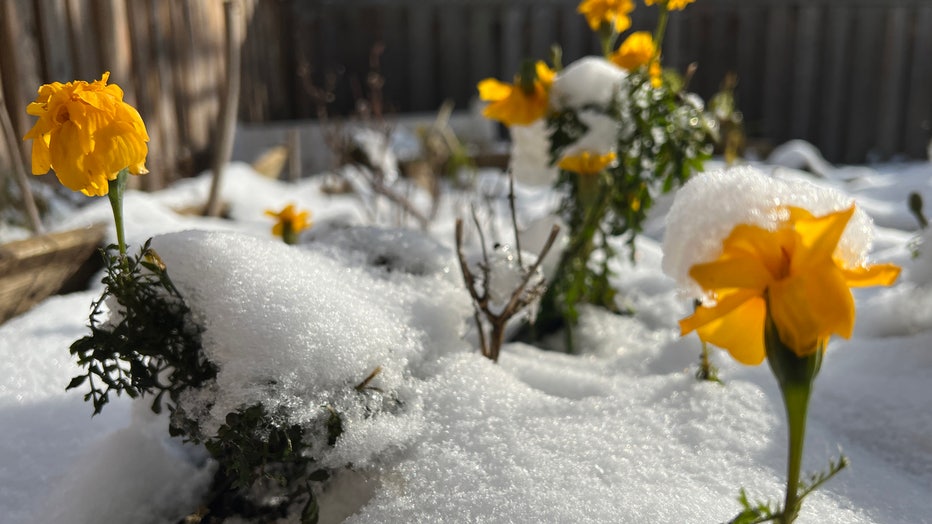
Flowers covered with snow in Toronto, Ontario, Canada, on November 17, 2022. (Photo by Creative Touch Imaging Ltd./NurPhoto via Getty Images)
North America is divided into 11 planting zones. The guidance for protecting plants vary by location and how low temperatures are expected to drop.
Horticulture specialists at Texas A&M suggest taking the following steps to make sure plants make it through the frosty weather:
- Water plants ahead of a cold snap
- Cover with blankets, sheets or towels
- Move plants indoors or close to the house, if possible
- Place heating lamps or Christmas lights near plants
4) Pipes
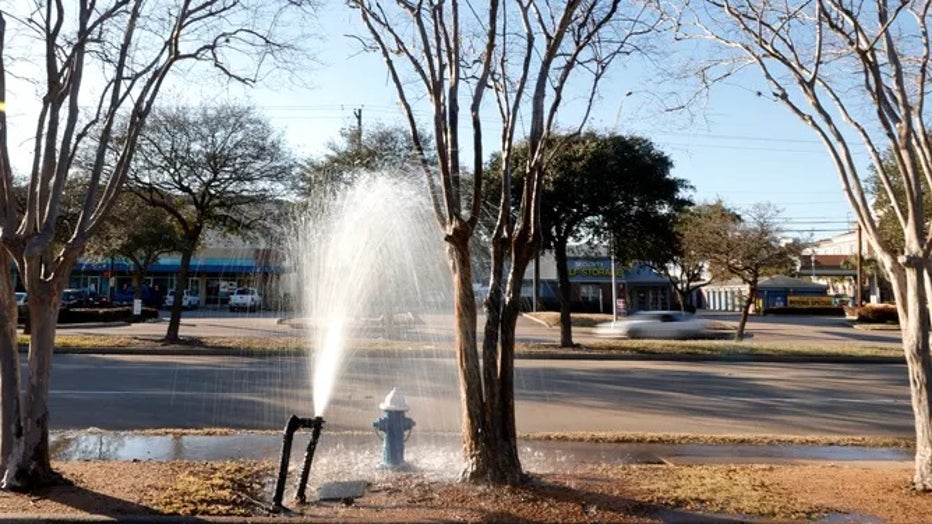
Water shoots out of a burst pipe outside of a restaurant on February 20, 2021 in Houston, Texas. ( Justin Sullivan/Getty Images)
Consumer Reports says the most common property damage during the winter months is from frozen pipes. Water expands when it freezes, which can be disastrous to plumbing lines. The consumer organization suggests:
- Wrapping pipes with insulation
- Keeping garage doors closed, if near water lines
- Letting the faucet drip during extreme cold
- Setting home’s thermostat to no lower than 55° F
5) Pools
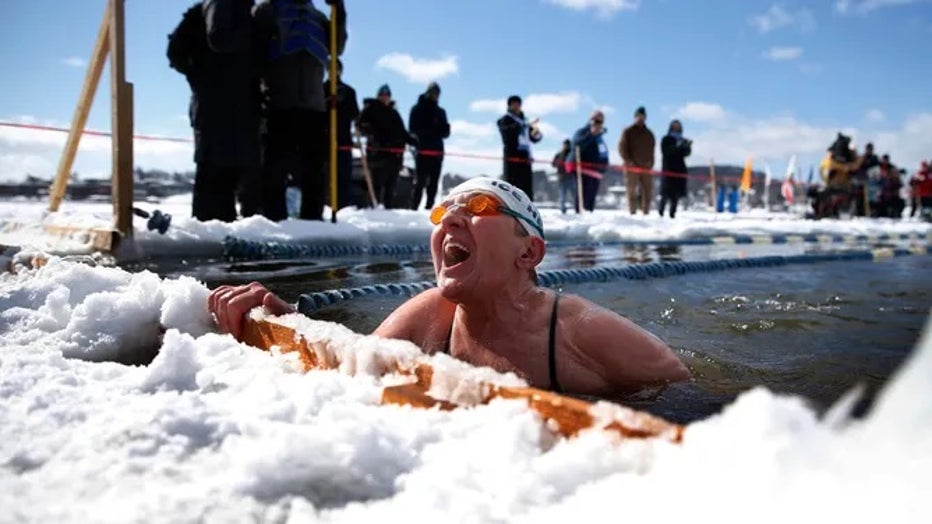
Louise Hyder-Darlington of Elizabethtown, PA reacts after finishing the 200 meter freestyle race at the annual Memphremagog Winter Swimming Festival in Newport, VT on Feb. 25, 2022. (Jessica Rinaldi / The Boston Globe / Getty Images)
For pools that aren’t winterized, Pinch A Penny, America’s largest pool care company, says to make sure to run the pool pump when temperatures are near or below freezing. Experts say it is crucial to keep the water moving to make sure pipes don’t freeze.
6) Protect vehicles
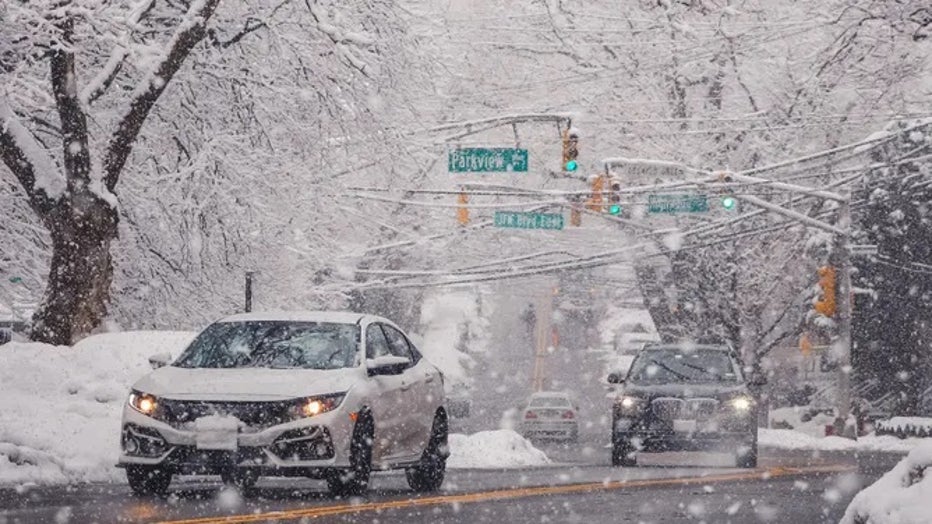
Cars drive through the snowy weather. (Olga Subach / Unsplash)
Cold weather can impact vehicles in several ways. AAA advises drivers to make sure vehicles are up-to-date on maintenance and monitor any sluggishness that can lead to bigger issues.
- Check battery: Make sure it isn’t weak before the onslaught of winter
- Check fluids: Low temperatures can cause fluids to thicken lines to freeze
- Check tires: Cold air reduces pressures, which can lead to unsafe wear
7) Practice fire safety
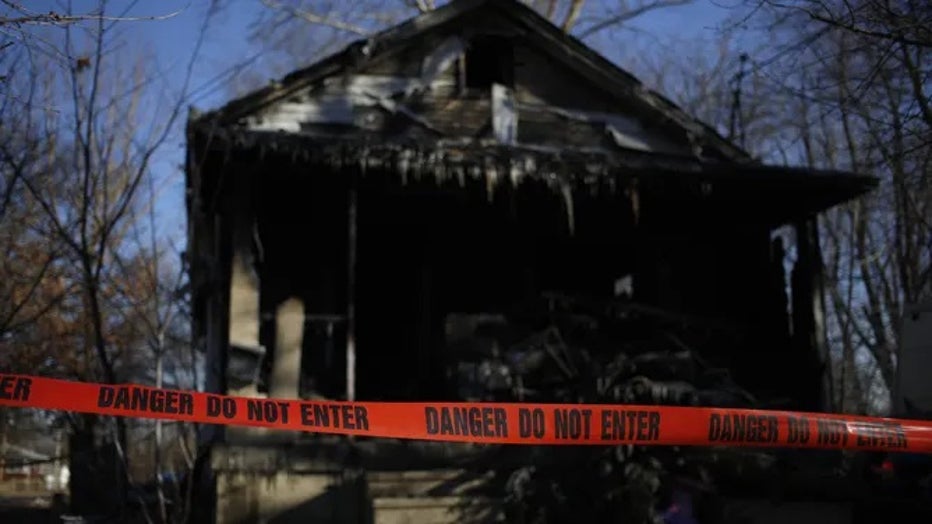
The charred remnants of 58-year-old Gerry Jennette's home stand in bitter cold below-zero temperatures on January 7, 2014 in Louisville, Kentucky. Firefighters blamed the blaze, which occurred last night, on a faulty space heater. ( Luke Sharrett/Get
The National Association of State Fire Marshals reports more fires happen during the winter than any other time of the year. Firefighters advise keeping heaters at least three feet away from flammable items. You are also urged to never leave a warming device alone and to make sure the heater, fireplace, or wood stove isn’t active when you head to bed.
The association also advises homeowners to make sure they have working carbon monoxide and smoke detectors.

